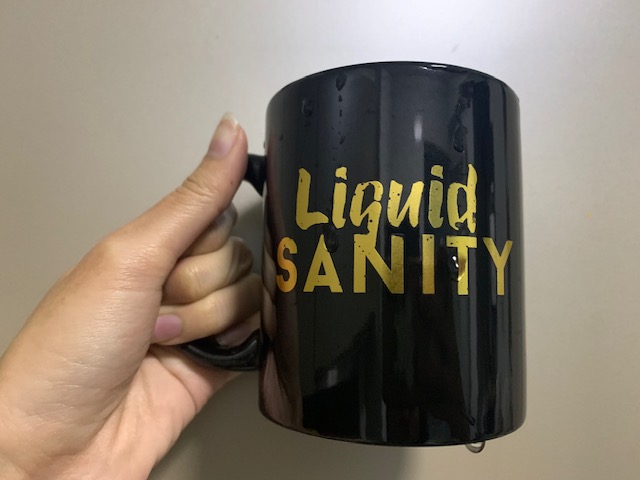I just spent the last hour combing my house for my favourite mug. It is a mug that shows my sense of humor–it is black in colour, has the words “Liquid Insanity” emblazoned in gold, and it is from Typo.
Yes, I know. I still buy (some) things from Typo. I like the aesthetic.
Many Chinese people who grew up like me know that attaching importance to objects is meaningless. Objects are temporary–more temporary than us. They may break (like mugs), they wear down, and they cannot give you happiness. But I always need to have a laptop, and when my old one died, I was mourning.
When I came home and could not find my mug to put in a drink in, I felt lost. Something didn’t feel right. Something in my small universe–my land of books and writing and reading–was gone because something that was part of my writing routine and my daily life was missing. Get it together, you may say. It’s just a mug, right?
Often, objects are so much more than what they are. My room may seem messy, but there is a deliberate madness to create a sense of homeliness. It is a sanctuary where I can pen down my work. Anything that goes missing from it results in a jarring discomfort until I find the object. I have, over the years, learnt how to push away the discomfort and concentrate, but I will still come back to look at it and comb every place where it could have been.
So my favourite mug. It is a symbol of new beginnings because I bought it when I started a new job. It is a symbol of my sense of humour (my “liquid sanity” is tea, by the way). It is on my desk when I write and edit.
Here’s to my mug. And the little accesories that clutter the room that make me feel that I have a space, one that is truly my own.
